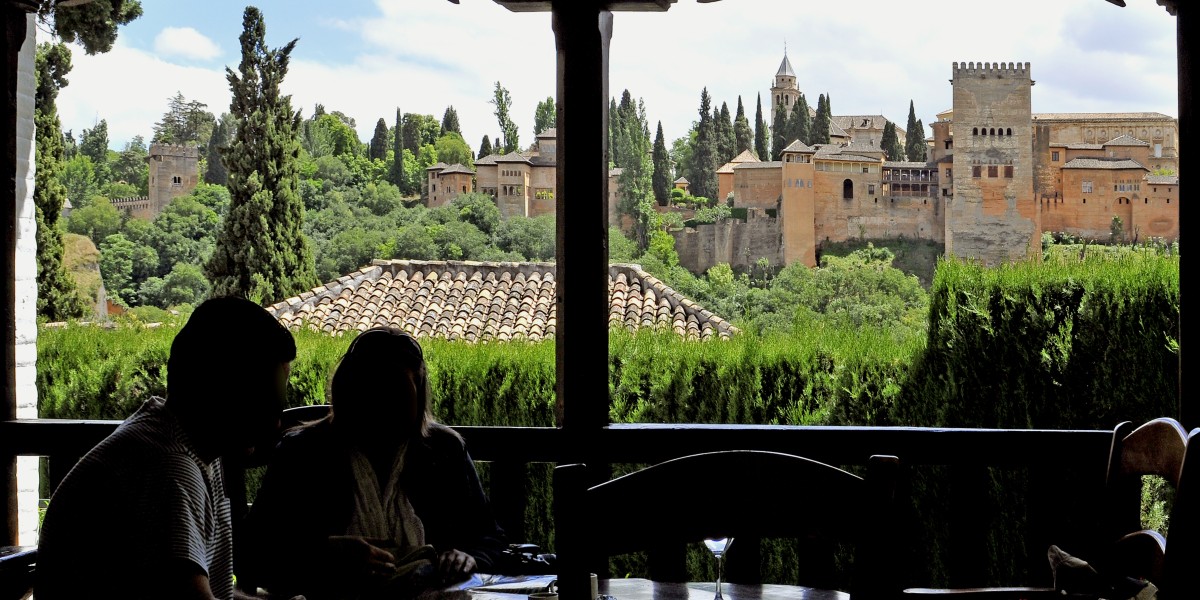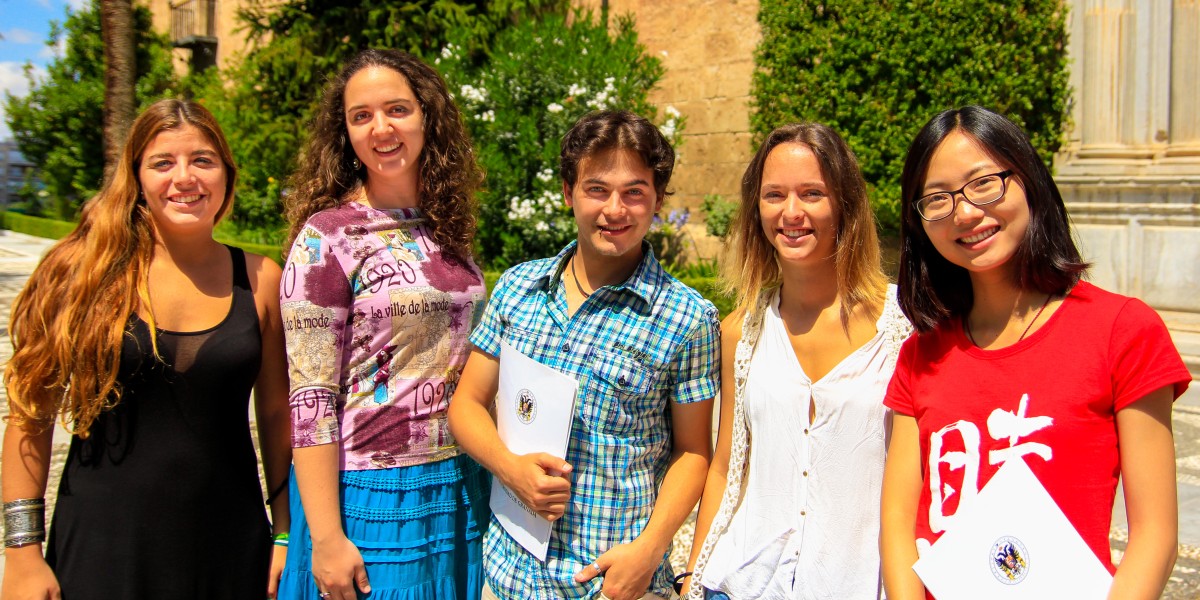
Granada isn’t just famous for its ancient palaces and mountain views – it’s a proper student city at heart. With the University of Granada woven through its cobbled streets, the place hums with youthful energy. Many people here are either students or seem to treat you like one, so you’ll blend in within days. Life is affordable, the tapas culture means you’ll rarely eat alone (or pay much for lunch), and it’s the sort of place where you’ll bump into friends just walking across town.
You may be looking for a year of Spanish immersion, considering a tough medical degree, or simply want a friendly place to start your university adventure abroad. This Andalusian city has a knack for welcoming newcomers, making studying in Granada a popular choice for many international students.
Is Granada good for students?
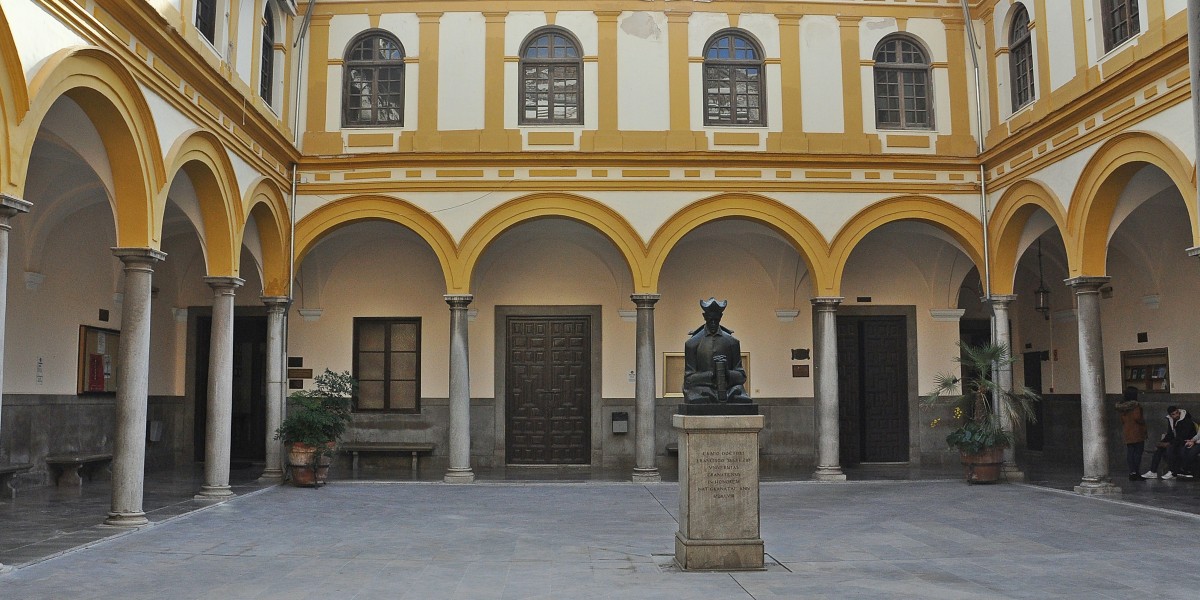
Granada has a reputation for being one of Spain’s most student-centric cities, and you can feel that as soon as you arrive. Cafés fill with people cramming for exams, and you’ll struggle to find a corner of the centre that doesn’t have a group of students comparing lecture notes or swapping stories about their nights out.
Granada stands out for its friendly, down-to-earth atmosphere. The locals are used to people coming from all over, and there’s always something happening. Expect live music, film nights, improvised flamenco jams, or just bar-hopping for free tapas well into the night. Settling in is dead easy, whether you’re coming for an Erasmus semester, a full degree, or a year of language study.
Best places to study in Granada

When it comes to places to study, Granada punches well above its weight for a city this size. The star of the show is definitely the University of Granada (UGR), which has been around since the 16th century. Academically, the university rates highly for fields like medicine, translation, law and sciences.
If you’re after Spanish language courses, Granada is a bit of a hotspot. The university’s own Centro de Lenguas Modernas draws in learners from across the globe.
Granada also has a small but growing number of private business schools and professional academies, such as Escuela Internacional de Gerencia (EIG), which offers business and management programmes often designed with an international focus. There are also specialist colleges for areas like tourism, hospitality, and IT, which sometimes partner with local companies for hands-on projects and placements.
What to study in Granada
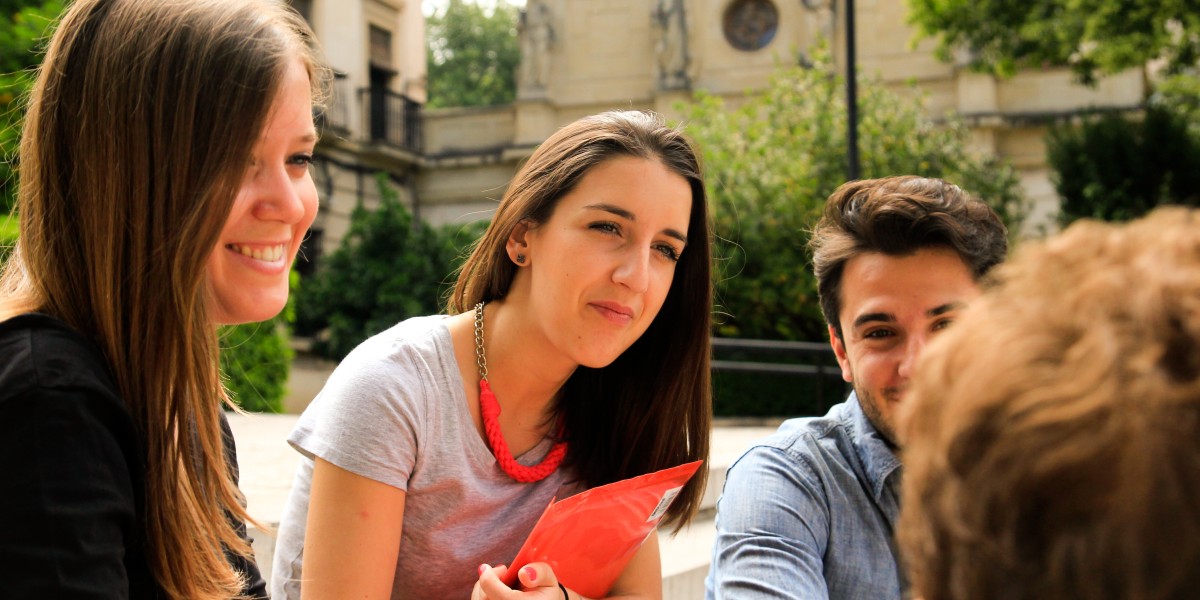
Granada’s academic scene is broad, but a few subjects really stand out for international students. Most of the university’s faculties are scattered across the city. You’ll find Humanities and Social Sciences up the hill on the Cartuja campus, while Science and Engineering students tend to stick around the Fuentenueva area. Medicine and Health Sciences students split their time between modern facilities near the city centre and placements in local hospitals.
Study medicine in Granada
The medical faculty at the University of Granada is one of Spain’s most respected, attracting students looking for strong practical training and good research links. The city's medical research facilities excel in areas like neuroscience, genetics, and cardiovascular medicine. Students often participate in groundbreaking research projects, and the faculty maintains partnerships with hospitals and research institutions across Europe. Most courses are in Spanish, but for those who meet the language level, the reputation and quality are a big draw.
Can I study in English in Granada?
While undergrad courses are mostly taught in Spanish, the University of Granada also has courses taught in English. Master's programs increasingly are in English, particularly in international relations, engineering, and business fields. Erasmus students can sometimes find individual modules in English or opportunities through the Erasmus Mundus.
Many international students arrive with basic Spanish and achieve the necessary proficiency through intensive courses before or during their first semester.
Study Spanish in Granada
Beyond the university, the city is packed with Spanish language schools, like Modern Languages Center and ÉLECE Idiomas. Granada is undoubtedly one of the best cities for learning Spanish in Spain. Intensive courses attract beginners up to advanced speakers, and you'll find lots of uni prep or Erasmus Spanish courses.
How to get into the University of Granada
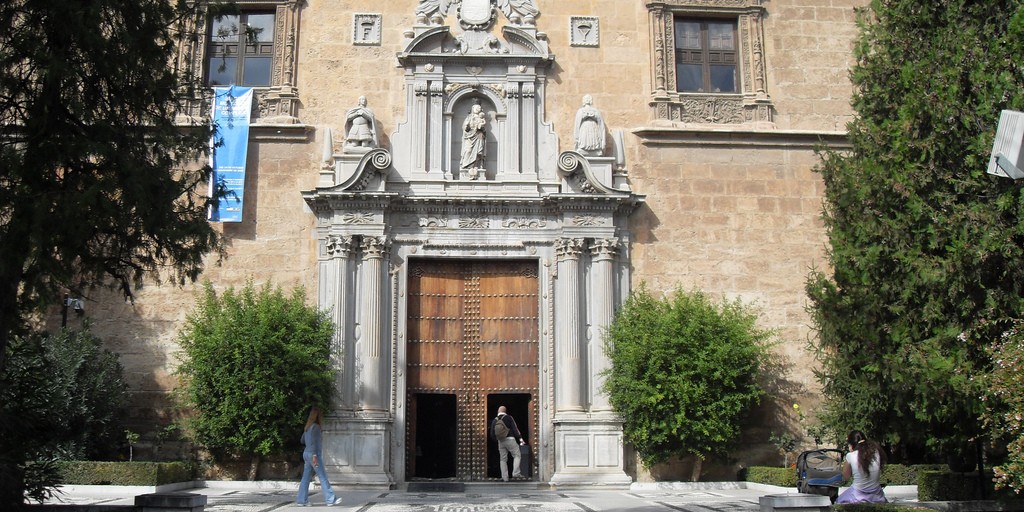
University of Granada entry requirements
For EU students, undergraduate admission typically requires a secondary school leaving certificate equivalent to Spain's Bachillerato. Some competitive programs like Medicine, Psychology, or Architecture require higher grades and may include entrance exams.
Non-EU students must first obtain recognition of their secondary education through Spain's Ministry of Education - a process called homologación. This can take several months, so starting early is crucial. Additionally, many programs require passing the PCE (Pruebas de Competencias Específicas), entrance exams covering subjects relevant to your chosen field.
University of Granada acceptance rate
The university's acceptance rate varies dramatically by program, but is estimated to be around 51%. While overall acceptance rates remain relatively high compared to universities in countries like the UK or the US, competitive programs can be extremely selective. International students should also consider that grade requirements might be higher for non-EU applicants due to limited spaces reserved for this category.
Is Granada an expensive city for students?

When it comes to the cost of living in Granada, most students are pleasantly surprised. Everyday expenses—think rent, food, and going out—are famously student-friendly, so you can enjoy a comfortable lifestyle here without burning through your savings.
Study in Granada: cost
If you want to study at the University of Granada itself, then you can expect to pay between €1,500 and €3,500 a year for an undergraduate degree. A master’s degree costs around €3,000 to €5,000, and an MBA could be almost double that. Tuition fees are normally higher for international students, but remain affordable as they are regulated by the government.
If a Spanish immersion course is more your thing, you can expect to pay anything from €200 a week for daily group classes. On top of this, you can opt for private Spanish lessons, cultural activities such as flamenco workshops, and exam prep. If you are an ERASMUS student, you'll pay less.
Student accommodation in Granada
Granada offers lots of housing options suited to different budgets and preferences. University residences are an affordable option, often including utilities and meals. However, spaces fill quickly, and applications should be submitted well before the academic year begins.
Shared flats represent the most popular choice among international students. Areas like the centre, Realejo, and near the Facultades offer numerous options. The cheapest rooms for rent in Granada cost around €200 per month, with utilities costing around €50 per person. Living in a shared flat provides more independence while giving you the chance to meet new people.
Studio apartments suit students preferring complete independence. Prices start from around €450 monthly for a basic studio in student areas. While more expensive, studios offer privacy and the freedom to establish your own routine.
You can rent a room in a shared flat in Granada directly from your home country using idealista's online booking service to save you the stress later down the line. You can also opt for insurance that simplifies the rental process by requiring no deposit and covering unexpected issues.
Is Granada safe for a student?

The large student population and compact city centre create natural safety through numbers and visibility, making it comfortable for students to walk around even late at night.
Personal safety concerns remain minimal in Granada's main areas. The Albaicín, Centro, and university areas experience regular foot traffic and police presence. Petty theft occasionally occurs in tourist-heavy areas like around the Alhambra, but violent crime affecting students is rare.
Studying in Granada as an international student
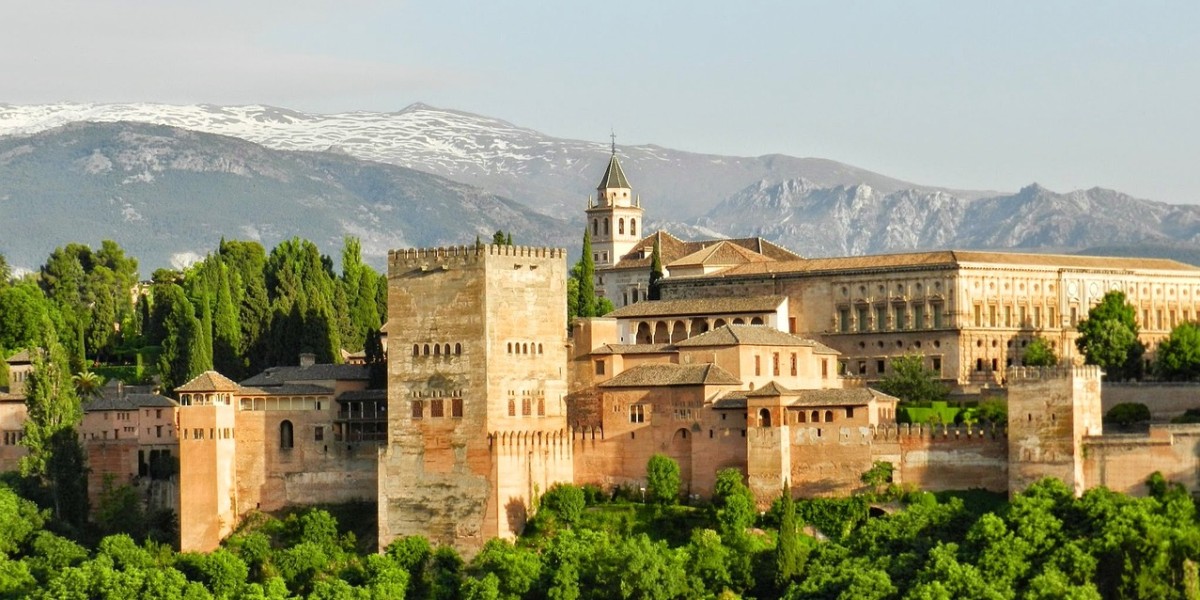
Landing in Granada as an international student, you’ll find it’s easy to slot into the rhythm of local life. Making friends is usually straightforward—there’s a strong sense you’re all in it together.
A few groups make life simpler, especially when you’re new. ESN Granada (the Erasmus Student Network) puts on everything from welcome picnics to city tours. There are also regular weekend trips for exploring Andalusia with other internationals.
Settling in is helped by how open most locals are—plenty of Spanish students actually want to meet internationals and practise their English or swap language tips. Intercambio de idiomas events pop up in bars and cafés throughout the week, and you’ll quickly find your regular spot.
On the practical side, most students open an account at Santander or BBVA, as they’re used to dealing with young internationals and sometimes even offer student perks. The university can help you register for public healthcare, which usually covers EU students with minimal fuss. Non-EU students might need to arrange private health insurance, so check your policies before you set off.
What to pack for study abroad in Granada

Packing for Granada isn’t a case of shoving a few T-shirts in your bag and hoping for the best. The city’s weather likes to keep you on your toes. Summers properly heat up, often pushing past 35°C, but winter nights can get chilly thanks to Granada’s spot up in the foothills.
Get your paperwork sorted before you travel. EU students just need their passport or national ID. Non-EU students will need their passport, student visa, health insurance and any translations of academic records. Bring a few paper copies, and chuck digital scans on your cloud or email just in case.
For electronics, remember Spain uses the standard European plug (type C/F), so grab a couple of adapters if you’re coming from outside the EU. An unlocked phone will save you hassle—Spanish SIM cards are cheap, and the student data deals are decent.
